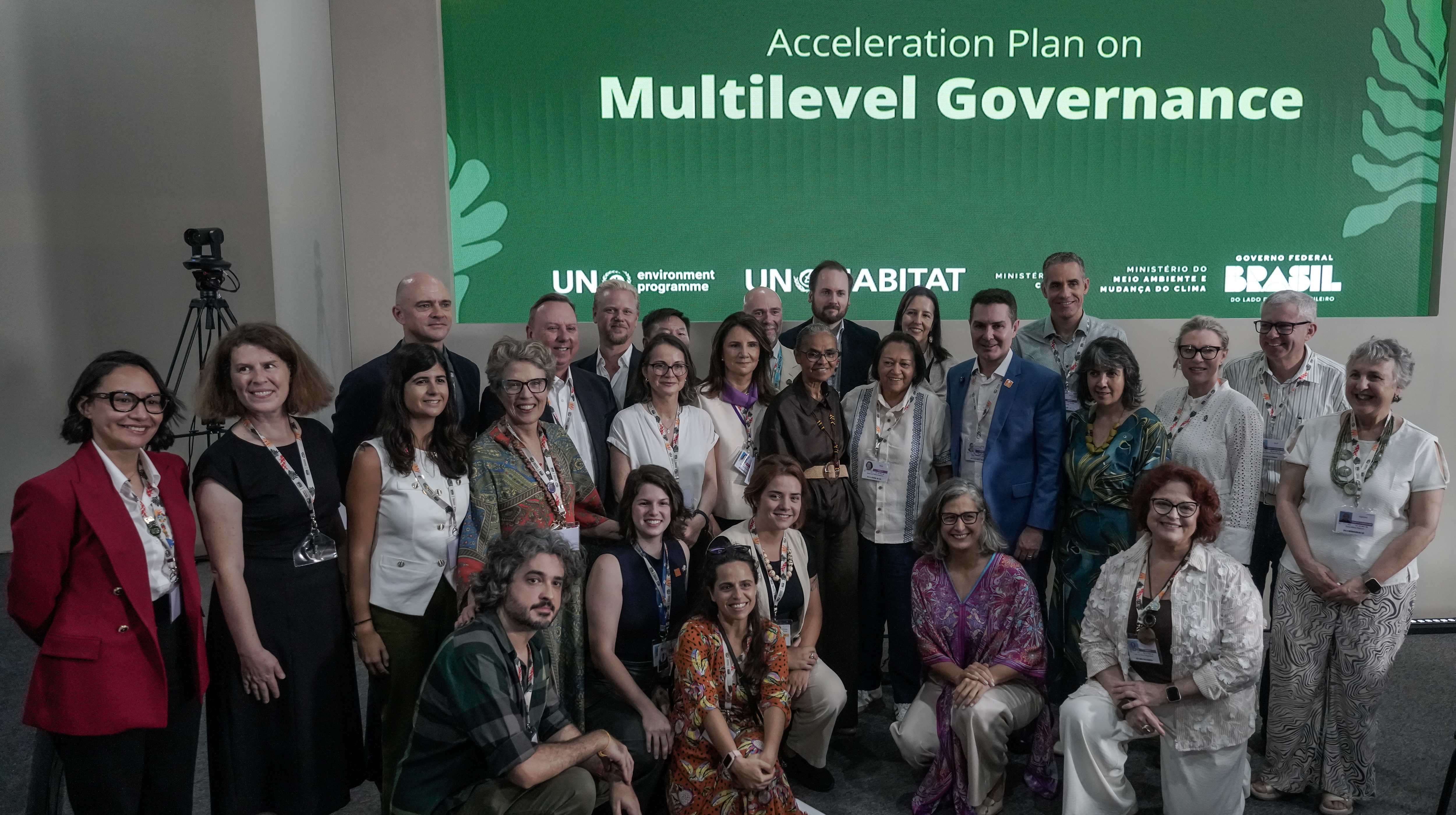Brazil Leads New Global Effort to Accelerate Multilevel Climate Action
At COP30, Brazil launched a plan that integrates climate action across national and local governments, as well as diverse sectors of society worldwide. The country also assumed co-chairmanship of the global coalition responsible for implementing these measures

By Laura Marques/COP30
On Tuesday, November 11, the Government of Brazil launched the Multilevel Governance Solutions Acceleration Plan (PAS). This initiative marks a new phase in global climate cooperation by institutionalizing integration across different levels of government and sectors of society as an essential condition for effectively implementing the Paris Agreement.
The announcement took place during the High-Level Ministerial Panel – Multilevel Governance for the Implementation of the Paris Agreement and Climate Strategies, held in the COP30 Blue Zone. On this occasion, Brazil and Germany were announced as co-chairs of the Coalition for High Ambition Multilevel Partnerships(CHAMP).
Brazil’s Minister of Environment and Climate Change, Marina Silva, emphasized that adapting to climate change requires transforming not only the physical structures of cities but also governance models. “Multilevel governance is not merely a matter of coordination — it is a space for accountability and shared responsibility among diverse actors across sectors, enabling more effective management,” she stated.
Explaining a core pillar of PAS, Inamara Melo, General Coordinator for Adaptation at the National Secretariat for Climate Change, noted that the plan aims to integrate national and subnational policies. “It is essential to enhance national climate strategies to ensure the multilevel integration required for implementation. This process demands an inclusive governance framework that enables the transfer of data and technology. Such an approach can empower cities and states with the information needed for climate action and facilitate access to financing,” she said.
Brazil’s Minister of Cities, Jader Filho, called on all countries to join CHAMP, affirming that without subnational entities, it will be impossible to achieve climate targets. “Those who actually carry out the actions are subnational leaders. They are the ones who will prevent deforestation, stop sewage from being discharged into rivers, and transition our fleets toward decarbonization,” he explained.
Ana Toni, CEO of COP30, echoed the minister’s position: “It is governors and mayors who are on the front lines. They are the ones we need for the implementation of climate action.”
Also speaking at the event, Anacláudia Rossbach, Executive Director and Assistant Secretary-General of UN-Habitat, underscored the critical role of private sector collaboration—particularly in mobilizing financing—for multilevel climate action.
Solutions Acceleration Plan
The Solutions Acceleration Plan (PAS, in Portuguese) is structured around four key levers: risk-informed decision-making, knowledge and capacity-building, public and private financing, and inclusive governance with multilevel decision-making design, ensuring social participation.
The document sets clear implementation targets. By 2028, 100 national climate plans and Nationally Determined Contribution (NDC) implementation strategies are expected to formally incorporate multilevel governance structures and mechanisms, with the goal of reaching 120 plans by 2030. To support this, PAS envisions training 6,000 public officials and professionals in CHAMP-endorsing countries and beyond by 2028. This capacity-building will be delivered through ongoing programs led by the coalition and UN-Habitat.
Implementation will be led by the Brazilian Ministries of Cities and of Environment and Climate Change, with support from UN-Habitat and the CHAMP coalition, in collaboration with C40 Cities, the Global Covenant of Mayors for Climate and Energy (GCoM), WRI, and other global initiatives. In the coming months, these partners will refine the implementation framework and support the activation of collaborative initiatives at national and local levels.
CHAMP
The plan will serve as the implementation instrument for CHAMP. The coalition was launched at COP28 by the COP28 Presidency and Bloomberg Philanthropies as a platform to strengthen collaboration between national and subnational governments on climate policy and financing. To date, 77 countries and the European Union have endorsed the initiative.
Translation: Michel Emmanuel Félix François (POET/UFC)
Proofreading: Tadeu Azevedo (POET/UFC)
